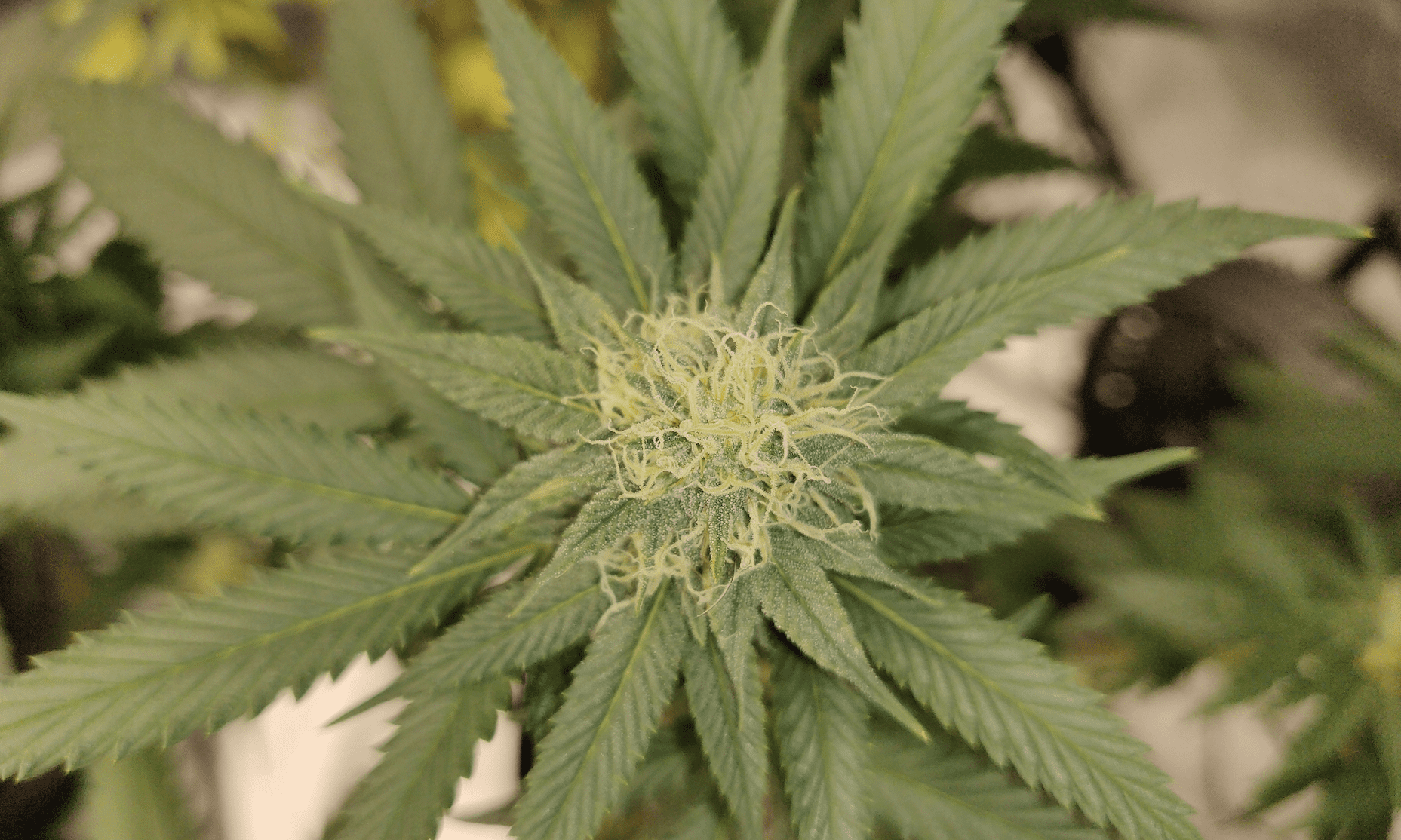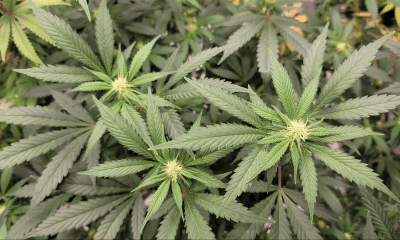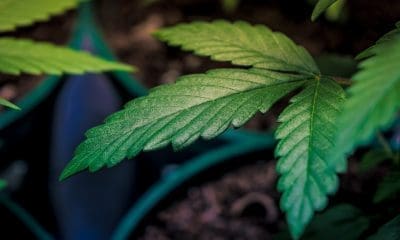Politics
North Dakota Voters Will Decide On Marijuana Legalization At The Ballot This November, State Certifies

North Dakota voters will have the chance to decide on marijuana legalization at the ballot this November.
About a month after activists turned in signatures for their reform initiative, Secretary of State Al Jaeger’s (R) office approved the measure on Monday, certifying that the campaign had submitted enough valid petitions to put the measure before voters
New Approach ND was initially cleared for signature gathering in April. It ended up turning in 26,048 submissions—nearly double the amount needed. While a couple thousand were deemed invalid, the state said that activists ultimately came out ahead with 7,786 more good signatures than were required to qualify.
The initiative would allow adults 21 and older to purchase and possess up to one ounce of cannabis and grow up to three plants for personal use. Its provisions largely mirror the House-passed legalization bill that was ultimately rejected by the Senate.
Jaeger’s office has rejected two other ballot initiatives on unrelated issues this cycle after determining that many of the signatures those campaigns collected were invalid, but New Approach ND campaign manager David Owen previously said that they were confident that they took the necessary precautions to ensure that their measure would be accepted.
The legalization proposal will now be designated as Measure 1 on the ballot.
“I served as a police officer in Bismarck for over five years and have defended those accused of marijuana offenses for the last twenty years. There is no public safety benefit from arresting adults for small amounts of marijuana,” Mark Friese, who serves as the campaign’s treasurer, said in a press release. “It is a waste of taxpayer resources and a distraction from serious public safety concerns. Cannabis causes far less harm than alcohol. Many people find therapeutic benefits from it. The government shouldn’t be in the business of punishing adults who use cannabis responsibly.”
Here’s a breakdown of the measure’s key provisions:
-Adults 21 and older could purchase and possess up to one ounce of cannabis, four grams of marijuana concentrate and flower produced from up to three plants grown for personal use, as long as that cannabis is stored in the same location that the plant was cultivated.
-The Department of Health and Human Services, or a different agency designated by the legislature, would be responsible for creating rules for the program and overseeing licensing for marijuana businesses.
-Regulators would have until October 1, 2023 to develop rules related to security, advertising, labeling, packaging and testing standards.
-The department could only license a maximum of seven cultivation facilities and 18 retailers. In an effort to mitigate the risk of having the market monopolized by large companies, the initiative stipulates that no individual or entity would be permitted to own more than one cultivation facility or four retail locations.
-There would be specific child custody protections for parents who use cannabis in compliance with state law.
-Employers could continue to enforce existing drug policy prohibiting marijuana use.
-With respect to past criminal records, the initiative would not provide a pathway for expungements, though activists say they intend to work with the legislature on enacting separate legislation addressing that issue in 2023.
-Local jurisdictions would be able to prohibit marijuana businesses from operating in their area, and cannabis companies would also be required to adhere to local zoning rules.
-The state’s five percent sales tax would apply to cannabis products, but no additional tax would be imposed specifically for marijuana.
-Manufacturers would need to pay a biennial $110,000 registration fee and retailers would need to pay $90,000. Those funds would support the department’s implementation and administration of the adult-use program.
-The initiative does not lay out any specific use of funds collected from these fees beyond administration.
-Public consumption would be prohibited.
A similar measure was introduced in the legislature in 2021. The bill from Rep. Jason Dockter (R) passed the House, but it was defeated in the full Senate after advancing out of committee there.
—
Marijuana Moment is tracking more than 1,500 cannabis, psychedelics and drug policy bills in state legislatures and Congress this year. Patreon supporters pledging at least $25/month get access to our interactive maps, charts and hearing calendar so they don’t miss any developments.
![]()
Learn more about our marijuana bill tracker and become a supporter on Patreon to get access.
—
Following that defeat, some senators devised a new plan to advance the issue by referring it to voters on the 2022 ballot. The resolution moved through a key committee last year, but the Senate also blocked it.
Representative Matthew Ruby (R), who is a member of the campaign’s sponsoring committee, said that the initiative “is a conservative approach to cannabis legalization based on legislation passed by the North Dakota House of Representatives.
“It balances personal freedom with personal responsibility,” he said. “Adults will no longer be punished for using cannabis—but only if they do so safely and responsibly. As voters have a chance to review the measure in detail, I’m confident a majority will agree this is the right approach for North Dakota.”
There have been repeated attempts by activists to enact legalization in the Peace Garden state.
Advocates with the group North Dakota Cannabis Caucus started collecting signatures to qualify a constitutional amendment legalizing cannabis for the 2022 ballot, but they did not gather enough by a January deadline.
Owen previously led an effort to place a legalization measure on the 2018 ballot that was defeated by voters. They filed another initiative for 2020, but signature gathering complications largely caused by the coronavirus pandemic got in the way.
Meanwhile, a bill to significantly expand marijuana decriminalization in North Dakota cleared the House last year but was later defeated in the Senate.
That legislation would have built upon an initial marijuana decriminalization law that was enacted in 2019. Under the current statute, possession of half an ounce or less of cannabis is an infraction punishable by a fine of up to $1,000, with no jail time. The defeated proposal would’ve made possession of up to an ounce a non-criminal offense that carried a $50 fine.
House Majority Leader Chet Pollert (R) previously said that he’s not “a marijuana person,” but he’s acknowledged that cannabis legalization is coming. While he would have previously been inclined to oppose a legalization bill, Pollert said voter approval of a legalization initiative in South Dakota has made him reconsider, adding that the legislature should “take a long, hard look” at the policy change.
North Dakota voters approved a medical cannabis ballot measure in 2016.
Here are other states where drug policy reform could be decided by voters at the ballot in November:
In neighboring South Dakota, a marijuana legalization initiative has again qualified for the ballot.
The Arkansas Supreme Court recently ordered the secretary of state’s office to certify a marijuana legalization initiative for the November ballot—but there’s a chance that the votes will not end up being counted, depending on the final outcome of a pending legal challenge.
Maryland elections officials have finalized the language for a marijuana legalization referendum that lawmakers placed on the November ballot, and have issued a formal summary of the reform proposal.
The Oklahoma attorney general revised the ballot title of a marijuana legalization initiative that activists hope will be certified to go before the state’s voters, making mostly technical changes that the campaign views as satisfactory.
Missouri’s secretary of state certified that activists turned in more than enough signatures to qualify a marijuana legalization initiative for the November ballot.
Colorado voters will have the chance to decide on a historic ballot initiative this November to legalize psychedelics and create licensed psilocybin “healing centers” where people can use the substance for therapeutic purposes.
Nebraska advocates recently submitted signatures for a pair of medical cannabis legalization initiatives. The campaign has faced several challenges along the way, including the loss of critical funding after a key donor passed away and a court battle of the state’s geographic requirements for ballot petitions.
An initiative to legalize marijuana will not appear on Ohio’s November ballot, the campaign behind the measure announced in May. But activists did reach a settlement with state officials in a legal challenge that will give them a chance to hit the ground running in 2023.
Michigan activists announced in June that they will no longer be pursuing a statewide psychedelics legalization ballot initiative for this year’s election and will instead focus on qualifying the measure to go before voters in 2024.
The campaign behind an effort to decriminalize drugs and expand treatment and recovery services in Washington State said in June that it has halted its push to qualify an initiative for November’s ballot.
While Wyoming activists said earlier this year that they made solid progress in collecting signatures for a pair of ballot initiatives to decriminalize marijuana possession and legalize medical cannabis, they didn’t get enough to make the 2022 ballot deadline and will be aiming for 2024 while simultaneously pushing the legislature to advance reform even sooner.
In March, California activists announced that they came up short on collecting enough signatures to qualify a measure to legalize psilocybin mushrooms for the state’s November ballot, though they aren’t giving up on a future election cycle bid.
Meanwhile, there are various local reforms that activists want to see voters decide on this November—including local marijuana decriminalization ordinances in Ohio, West Virginia and Texas.
Wisconsin voters in at least half a dozen cities and counties will be asked on November’s ballot whether they support legalizing, taxing and regulating cannabis in a manner similar to alcohol. Those advisory questions will be non-binding, however, and are intended to take the temperature of voters and send a message to lawmakers about where their constituents stand.
Read the advisory and letter from North Dakota’s secretary of state on the marijuana legalization ballot initiative certification below:
Photo courtesy of Mike Latimer.
















